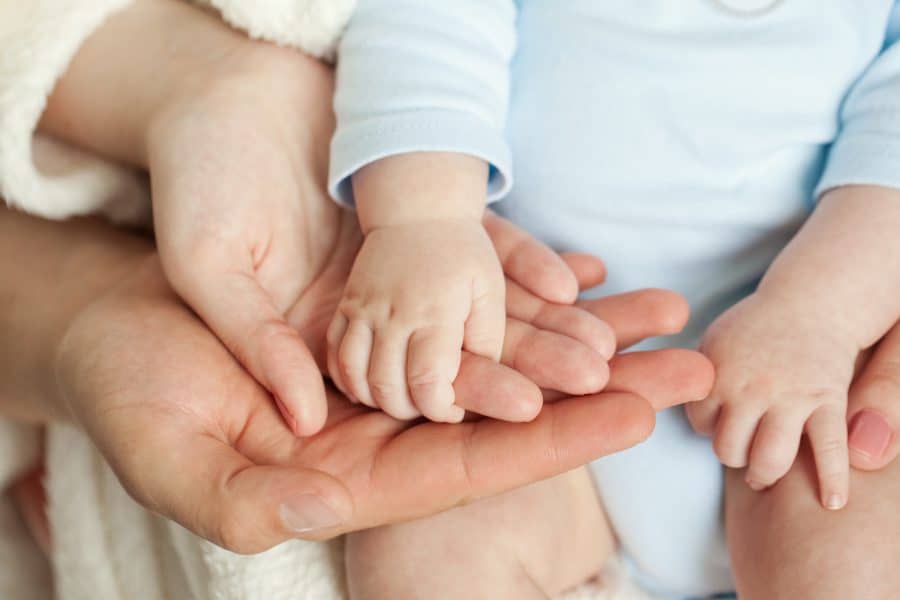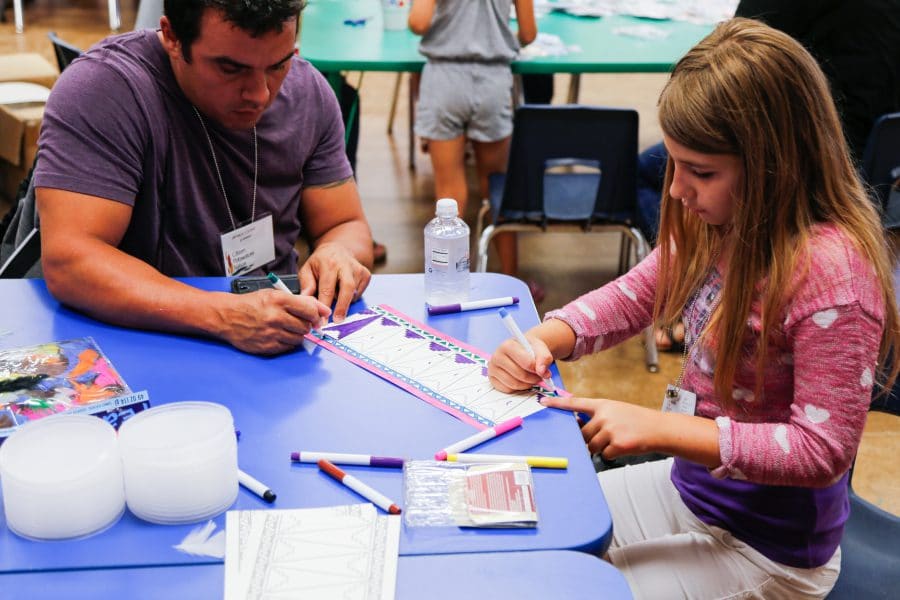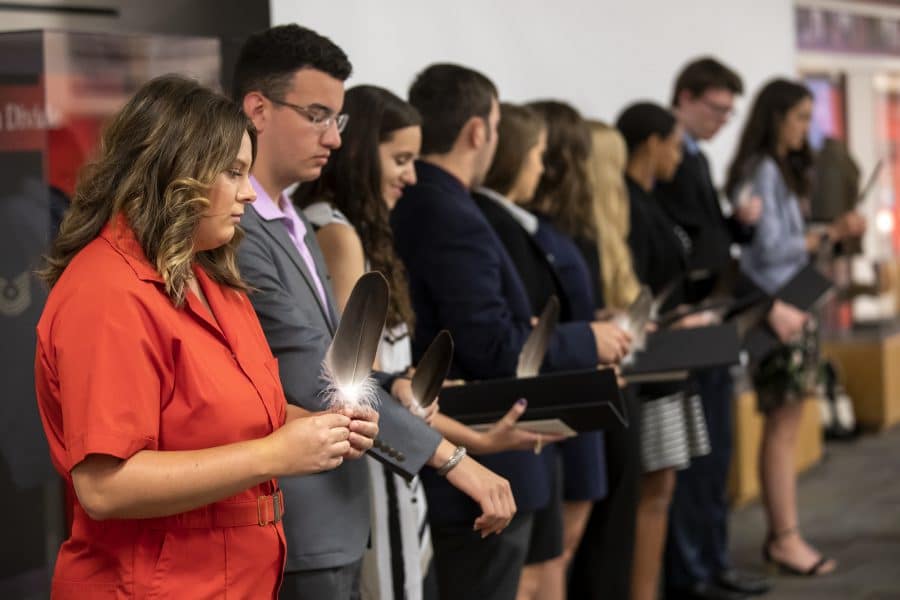This episode is all about youth. The 2019 Potawatomi Leadership Class participants talk about their experience spending their summer at the Tribe, an employee from FireLodge Children and Family Services discusses Potawatomi children in foster care, and students from CPN’s Child Development Center share their own Red Ribbon Week slogans. The CPN Language Department also begins a new segment “Learning Language.”
Fostering with FireLodge
Citizen Potawatomi Nation has its own Indian Child Welfare Program and foster care and adoption services, both of which are a part of FireLodge Children and Family Services. One of the major goals of the programs is permanent placing of children in foster care. CPN foster care and adoption specialist Kendra Lowden discusses the importance of the program.

“Native American foster children may be adopted, but they should be adopted within the Tribe. So whether, that’s with their family, or with a member of the Tribe, we ensure that they are connected to their Tribe,” she said.
For more information about CPN’s Indian Child Welfare Program, please visit potawatomi.org/firelodge, or call 405-878-4831.
Red Ribbon Week slogans
The CPN Child Development Center collaborated with the Behavioral Health Department to teach the children about the dangers of drug use. They created their own flyers to show what they learned and came up with their own anti-drug slogans.

“Being drug free is important to me because I want to spend time with my family” was only one of the great reasons they gave to stay away from harmful substances.
The 2016 Surgeon General’s Report on Alcohol, Drugs and Health states it is never too early or too late for prevention programs and policies to help curb substance abuse. Find out more about CPN’s Behavioral Health program at cpn.news/CPNBH and the Child Development Center at cpn.news/cdc.
Learning Language
We’re starting a new segment called “Learning Language” when CPN Language Department Director Justin Neely teaches songs, phrases, stories and more. This time, he covers some basic phrases and common words in Potawatomi you can use in everyday life.
- Bozho. — Hello
- Ni je ezhnekasyen? — What is your name?
- ___________ ndezhnekas. — My name is ___________.
- Ni pi je wech byayen? — Where do you come from?
- ___________ ndoch bya. — I come from ___________.
- Mine ___________ edayan odejo pi. — And I live in ___________ at this time.
- Ni je na ngom? — How are you today?
- Anwe she shena. — I’m fine.
- Gin je? — And you?
- Nde-yekwes. — I am tired.
- Bama mine. — Later, again.
- Bama mine ngoji. — Later again somewhere.
For more information and opportunities with language, including self-paced classes, visit cpn.news/language. You can find an online dictionary at potawatomidictonary.com as well as videos on YouTube. There are also Potawatomi courses on the language learning app Memrise.
Potawatomi Leadership Program reflections
Citizen Potawatomi Nation’s Potawatomi Leadership Program welcomes 10 Tribal members and college freshman from across the country to Oklahoma for a six-week internship. During that time, they learn about the Tribe, broadening their horizons for their careers, cultures and identities. The interns present their final projects and reflections at the end of the program, including what they learned about CPN, being Native American and about themselves. The 2019 PLP Class stood in front of their families, friends and Tribal leaders at the end of July to explain what the experience meant to them.

“The biggest lesson I’ve learned during PLP, a true Native American can be of any race or creed, and if they love their community and keep the culture alive, the deserve to be called and call themselves Native American,” said Spokane Falls Community College freshman Liam Wrixon.
Following their presentations, Chairman Barrett performed a short ceremony blessing eagle feathers the program gifted the students and congratulated them on the completion of their extensive internship. To find out more about the Potawatomi Leadership Program, visit plp.potawatomi.org.
Hownikan Podcast is produced and distributed by Citizen Potawatomi Nation’s Public Information Department. Subscribe to Hownikan Podcast on Apple Podcasts, Spotify, SoundCloud and wherever you find your favorite shows. Find digital editions of the Tribal newspaper here.
